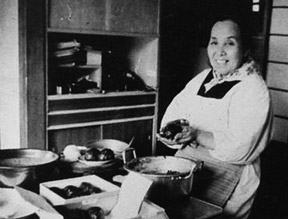Yamagata Manabikan
Yamagata Manabikan is a former elementary school, built in 1927, that has been renovated and registered as a national cultural property and is made available to citizens as a base for cultural activities in the center of the city. During the period of this year’s film festival, it will be the venue for numerous events, including free film screenings, workshops, symposiums, photography exhibitions, and a market for Yamagata products. Centrally located near the festival venues, it is a good spot to arrange a rendezvous. A café will be operating, so feel free to stop by.
- Student Theatre
- In response to frequent requests, we have established a place for exchanges among students. Projection equipment will be set up in Basement Room #7 and made available during the building’s operating hours (9 am to 9 pm). The space can be used by students who meet during the festival, to show their films to each other and discuss them. Students are welcome to use the space for free, on a first-come basis. Please register in advance at the tourist information counter on the 1st floor.
Info & PR- The tourist information center will sell festival tickets and festival-related products, while screening trailers for Reviving Recipes and Roundabout, Colors of Soundsteps. Computers will be available for data searches, and books and magazines for reading.
Yamagata Film Critics’ Workshop- This project aims to encourage thinking, writing, and reading on film using documentaries as an entry point, while offering immersion in the live atmosphere of the film festival.
 Showa Housekeeping
Showa Housekeeping
(Showa no kaji)- JAPAN / 2009 / Japanese / Color / Video / 355 min
Director: Koizumi Kazuko
The director filmed the traditional housekeeping of her mother, Koizumi Suzu, at their Ota-ku, Tokyo, home, which is now the“Museum of Life in the Showa Era.” The careful documentation resulted in a six-hour long, large-scale documentary. The housewife of an ordinary home did all of the housework necessary to sustain a family, with her own hands and body—from cooking, laundry, sewing, cleaning, child rearing, and nursing to socializing with family and neighbors. If the rich culture of this housekeeping had not been recorded, it would have been lost forever, and this film represents a tremendous cultural heritage.
Save Yamagata Indigenous Crops
(Tabete mamoro—Yamagataken no zairai sakumotsu)- JAPAN / 2011 / Japanese / Color / Video / 35 min
Director: Watanabe Satoshi
